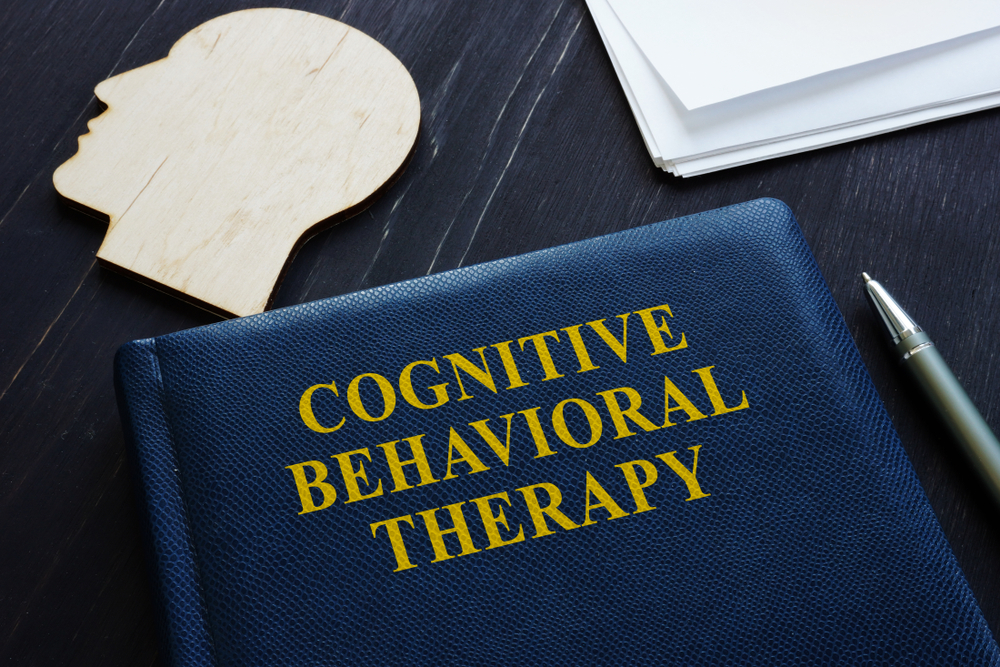Cognitive behavioral therapy (CBT) was developed in the 1960s by psychiatrist, Aaron Beck. It is a structured, short-term form of psychotherapy. Through his studies, he came to realize that there was an undeniable and imperative link between an individual’s thoughts and feelings. He found that it was not uncommon for individuals to be unaware of the link between how their negative thoughts adversely affected their emotions. He learned that guiding an individual to name and identify the thoughts perpetuating negativity was helpful in an individual overcoming related difficulty. Cognitive behavioral therapy focuses on specific problems and utilizes a goal-oriented approach. In CBT, a therapist will encourage his or her client to discuss his or her troubling thoughts and/ or feelings. The steps of CBT include the following, provided by Psychology Today:
- Identify troubling situations and/ or conditions in your life (e.g., divorce, a medical condition, anger, grief, etc.).
- Become aware of your emotions, thoughts, and beliefs connected to these troubling situations.
- Identify inaccurate and/ or negative thinking that may be contributing to your troubles.
- Reshape inaccurate and/ or negative thinking. To help facilitate this step, a therapist may encourage you to ask yourself if your view of the situation is based off an inaccurate perception of the situation or off facts.
The way CBT works is that through therapy, an individual will learn to understand that the way they behave has a direct correlation with their personal attitudes and emotional problems.
Engagement Matters
Client engagement, or treatment engagement, represents the level of healthy attachment a client has with the therapist and has a direct impact on one’s prognosis. Experts assert that client engagement reflects the quality of the interaction, the collaborative nature of developing tasks and treatment goals, and the therapeutic alliance between client and therapist. Hence, treatment engagement is an essential element of effective therapy. One study that explored patient engagement as a predictor of treatment outcome in cognitive behavioral therapy for anxiety disorders found higher patient engagement in CBT to be a robust predictor of greater reductions in anxiety symptoms, depression symptoms, and functional disability. Additionally, “completing exposures, high attendance, and being more homework adherent predicted better outcomes across all measures.” Another study concluded that engaged clients were more likely to bond with therapists, endorse treatment goals, participate to a greater degree, remain in treatment longer, and reported higher levels of satisfaction.
Further Information and Support
For most of us, life can be very stressful, leading us to feel emotionally charged, which can cause anxiety, panic attacks, depression, and getting stuck in a cycle of being burdened with negative thoughts. Navigating through the challenges and emotional turmoil of life can be overwhelming, but you do not have to go through it alone. Engage Treatment is a Joint Commission Accredited professional psychological practice. We specialize in treating children, teens, and young adults struggling with depression and anxiety through community-focused treatment plans that incorporate a carefully selected combination of therapeutic interventions. Our compassionate, multidisciplinary practitioners are devoted to providing the highest quality of care that helps ignite positive change and enables clients to reach optimal health and well-being. Please do not hesitate to reach out for guidance. We are happy to answer questions and provide you with any additional information. Feel free to call us at 805-497-0605 or email us at [email protected]. You are also welcomed to get in touch by filling out our contact form. We look forward to connecting and having the opportunity to discuss how we might best be able to support you.

